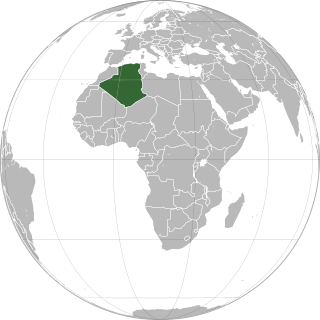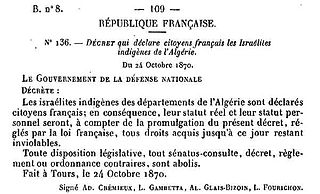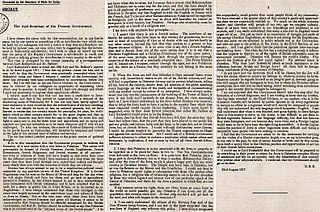Related Research Articles
Antisemitism has increased greatly in the Arab world since the beginning of the 20th century, for several reasons: the dissolution and breakdown of the Ottoman Empire and traditional Islamic society; European influence, brought about by Western imperialism and Arab Christians; Nazi propaganda and relations between Nazi Germany and the Arab world; resentment over Jewish nationalism; the rise of Arab nationalism; and the widespread proliferation of anti-Jewish and anti-Zionist conspiracy theories.
Islamophobia is the fear of, hatred of, or prejudice against the religion of Islam or Muslims in general, especially when seen as a geopolitical force or a source of terrorism.

Maghrebi Jews or North African Jews are ethnic Jews who had traditionally lived in the Maghreb region of North Africa under Arab rule during the Middle Ages. Established Jewish communities had existed in North Africa long before the arrival of Sephardi Jews, expelled from Portugal and Spain. Due to proximity, the term 'Maghrebi Jews' sometimes refers to Egyptian Jews as well, even though there are important cultural differences between the history of Egyptian and Maghrebi Jews. These Jews originating from North Africa constitute the second largest Jewish diaspora group.

Albert Memmi was a French-Tunisian writer and essayist of Tunisian-Jewish origins.

The history of the Jews in France deals with Jews and Jewish communities in France since at least the Early Middle Ages. France was a centre of Jewish learning in the Middle Ages, but persecution increased over time, including multiple expulsions and returns. During the French Revolution in the late 18th century, on the other hand, France was the first European country to emancipate its Jewish population. Antisemitism still occurred in cycles and reached a high in the 1890s, as shown during the Dreyfus affair, and in the 1940s, under Nazi occupation and the Vichy regime.

The History of the Jews in Algeria refers to the history of the Jewish community of Algeria, which dates to the 1st century CE.
Arab Jews is a term for Jews living in or originating from the Arab world. The term is politically contested, often by Zionists or by Jews with roots in the Arab world who prefer to be identified as Mizrahi Jews. Many left or were expelled from Arab countries in the decades following the founding of Israel in 1948, and took up residence in Israel, Western Europe, the United States and Latin America.

The Mozabite people or Banu Mzab are a Berber ethnic group inhabiting the M'zab natural region in the northern Sahara in Algeria, numbering about 150,000 to 300,000 people. They speak primarily the Mozabite language, one of the Zenati languages in the Berber branch of the Afroasiatic family. Mozabites are primarily Ibadi Muslims, but there was a small population of Jews as well.

The Grand Mosque of Paris, also known as the Great Mosque of Paris or simply the Paris Mosque, is located in the 5th arrondissement and is one of the largest mosques in France. There are prayer rooms, an outdoor garden, a small library, a gift shop, along with a cafe and restaurant. In all, the mosque plays an important role in promoting the visibility of Islam and Muslims in France. It is the oldest mosque in Metropolitan France.

The Crémieux Decree was a law that granted French citizenship to the majority of the Jewish population in French Algeria, signed by the Government of National Defense on 24 October 1870 during the Franco-Prussian War. It was named after French-Jewish lawyer and Minister of Justice Adolphe Crémieux.

Anti-Zionism is opposition to Zionism. Although anti-Zionism is a heterogeneous phenomenon, all its proponents agree that the creation of the modern State of Israel, and the movement to create a sovereign Jewish state in the region of Palestine – the biblical Land of Israel – was flawed or unjust in some way.
Antisemitism in France has become heightened since the late 20th century and into the 21st century. In the early 21st century, most Jews in France, like most Muslims in France, are of North African origin. France has the largest population of Jews in the diaspora after the United States—an estimated 500,000–600,000 persons. Paris has the highest population, followed by Marseilles, which has 70,000 Jews. Expressions of antisemitism were seen to rise during the Six-Day War of 1967 and the French anti-Zionist campaign of the 1970s and 1980s. Following the electoral successes achieved by the extreme right-wing National Front and an increasing denial of the Holocaust among some persons in the 1990s, surveys showed an increase in stereotypical antisemitic beliefs among the general French population.

The Holocaust in France was the persecution, deportation, and annihilation of Jews and Roma between 1940 and 1944 in occupied France, metropolitan Vichy France, and in Vichy-controlled French North Africa, during World War II. The persecution began in 1940, and culminated in deportations of Jews from France to Nazi concentration camps in Nazi Germany and Nazi-occupied Poland. The deportation started in 1942 and lasted until July 1944. Of the 340,000 Jews living in metropolitan/continental France in 1940, more than 75,000 were deported to death camps, where about 72,500 were murdered.

Abdelkader Ben Ghabrit, commonly known as Si Kaddour Benghabrit was an Algerian religious leader, translator and interpreter who worked for the French Ministry of Foreign Affairs. He was the first rector of the Great Mosque of Paris.

David Nirenberg is a medievalist and intellectual historian. He is the Director and Leon Levy Professor at the Institute for Advanced Study in Princeton, NJ. He previously taught at the University of Chicago, where he was Dean of the Divinity School, and Deborah R. and Edgar D. Jannotta Distinguished Service Professor of Medieval History and the Committee on Social Thought, as well as the former Executive Vice Provost of the University, Dean of the Social Sciences Division, and the founding Roman Family Director of the Neubauer Family Collegium for Culture and Society. He is also appointed to the Department of Romance Languages and Literatures, the Center for Middle Eastern Studies, the Joyce Z. and Jacob Greenberg Center for Jewish Studies.

Esther Benbassa is a French-Turkish-Israeli historian and politician. She specializes in the history of Jews and other minorities. Since 2011, Benbassa has served as a French senator, representing Paris from 2017 onwards and Val-de-Marne from 2011 to 2017.

Georges Bensoussan is a French historian. Bensoussan was born in Morocco. He is the editor of the Revue d'histoire de la Shoah. He won the Memory of the Shoah Prize from the Jacob Buchman Foundation in 2008.

The 1934 Constantine riots erupted in the Algerian city of Constantine against the local Jewish population, rooted in the different manner in which Jews and Muslims had been treated in Algeria by the French colonial government. It is uncertain what the exact cause of the riots was, though various accounts suggest that the riots were triggered by an altercation between a Jewish man and some Muslims at the Sidi Lakhdar Mosque in Constantine. Multiple sources report that 25 Jews and 3 Muslims died over the course of the three-day riot, and several Jewish establishments were pillaged. The events have also been described as a pogrom.

Antisemitism in France is the expression through words or actions of an ideology of hatred of Jews on French soil.
Anti-antisemitism is opposition to antisemitism or prejudice against Jews, and just like the history of antisemitism, the history of anti-antisemitism is long and multifaceted. According to historian Omer Bartov, political controversies around antisemitism involve "those who see the world through an antisemitic prism, for whom everything that has gone wrong with the world, or with their personal lives, is the fault of the Jews; and those who see the world through an anti-antisemitic prism, for whom every critical observation of Jews as individuals or as a community, or, most crucially, of the state of Israel, is inherently antisemitic". It is disputed whether or not anti-antisemitism is synonymous with philosemitism, but anti-antisemitism often includes the "imaginary and symbolic idealization of ‘the Jew’" which is similar to philosemitism.
References
- ↑ Caron, Vicki (November 2016). "Ethan B. Katz. The Burdens of Brotherhood: Jews and Muslims from North Africa to France. Cambridge, MA: Harvard University Press, 2015. 480 pp". AJS Review. 40 (2): 456–459. doi: 10.1017/S0364009416000738 . ISSN 0364-0094.
- ↑ "" Déconstruire l'idée selon laquelle les juifs et les musulmans sont liés par une hostilité naturelle "". Le Monde.fr (in French). 2016-09-22. Retrieved 2021-05-03.
- ↑ Cohen-Solal, Annie. "Juifs et musulmans français dans l'œil américain". Libération (in French). Retrieved 2021-05-03.
- ↑ Everett, Samuel (2016-04-26). "Where the burdens lie: positioning French Muslim-Jewish relations (from the outside?). À propos de: Ethan B. Katz, The Burdens of Brotherhood. Jews and Muslims from North Africa to France, Harvard University Press, 2015". Lectures (in French). doi:10.4000/lectures.20708. ISSN 2116-5289.
- ↑ Schreier, Joshua (2015-12-01). "Review Essay: Recent Titles on the History of Jews and Muslims in France and North Africa". Jewish History. 29 (3): 361–371. doi:10.1007/s10835-015-9249-y. ISSN 1572-8579. S2CID 254601024.
- ↑ "These names are being talked about to be the US anti-Semitism monitor". Jewish Telegraphic Agency. 2021-04-07. Retrieved 2021-05-03.
- ↑ Stutman/JWeeklyApril 5, Gabe; Area, 2021 Bay. "Antisemitism video explainer from UC Berkeley aims to cool campus debate". The Forward. Retrieved 2021-05-03.
- ↑ "Dialogues That Matter | Office of Equity, Diversity and Inclusion". diversity.ucmerced.edu. Retrieved 2021-05-07.